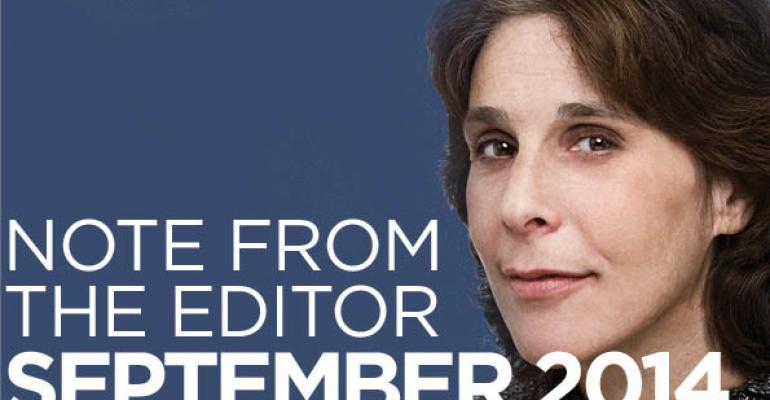Back in the day, I loved to play Scrabble (the board game) with my friends. (Yes, I was a nerd.) I enjoyed gathering around the table, picking my seven tiles and tabulating the points on a note pad after each turn. In my wildest dreams, I never imagined that 30 or so years later, I’d be playing a very similar game (Words With Friends) online, without the physical presence of friends, a board, tiles or a note pad.
These astounding technological changes in our personal lives are also reflected in our work as estate planners. As N. Todd Angkatavanich, Carole M. Bass, Jonathan G. Blattmachr and James I. Dougherty explore in “To Boldly Go Where No Man (or Woman) Has Gone Before,” p. 15, the increasing rate of progress has changed the nature of the issues we must address for our clients. Who knows what the future holds and how strategies we institute today will be implemented 100 years from now?
In the meantime, we need to help clients preserve and increase their assets in the present day so they have the resources they need for the future. One way to do so is through investments. Our Committee Report on Investments highlights three topics: helping families to pay for education for their children and grandchildren, while still encouraging the younger generations to be financially responsible (see “Paying it Forward,” by Elizabeth K. Miller, p. 44); when a fiduciary should consider using structured products in a trust portfolio to increase return and reduce risk (see “Structured Products in Trust Portfolios?” by Adam M. Morris, p. 48); and the advantages of owning stock in companies that generate sustainable income (see “Reduce Risk With Recurring Revenues,” by Gregory D. Singer, p. 52).
Finally, I’m saddened to report that our esteemed former advisory committee chair, Roy M. Adams, has passed away. We all will miss him. Roy was a legendary estate-planning lawyer and an invaluable contributor to Trusts & Estates. For a heartfelt tribute to Roy, see Charles (Clary) Redd’s piece on p. 51.


